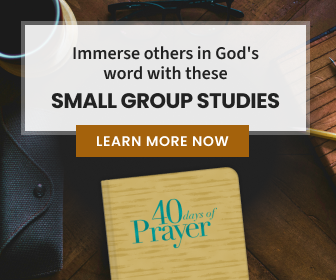Fellowship
12 Tips for a Successful Campaign

Having lived through 9 campaigns (running point on 5) in my 12 years as Small Group Pastor here at Saddleback, I have discovered that a strategy is only as good as the foundation and follow-through that surrounds it. As they say, the devil is in the details. That’s why our Saddleback Church Campaigns come with full instructions on how to run the campaign from start to finish. The instructions explain what types of teams you need to develop in addition to providing a calendar timeline and training DVDs.
Here’s another thing I’ve learned: a church-wide campaign will be an exponential experience for any church. It can be exponentially positive or negative, depending on how you approach it. So, based on my experiences (and a few battle scars), here are 12 tips to ensure a positive outcome for your church.
1. What’s the Compelling Question?
When you run a campaign, you need to know which question the campaign will answer. To give you an example, for our 40 Days of Purpose Campaign the question was, “What on earth am I here for?”
The compelling question gives your people a reason to join a small group and attend the corresponding weekend services. It provides your group leaders with motivation to invite others into their small group. Without a compelling question, the congregation won’t understand the central theme or the reason for the campaign.
2. Align Children, Student, and Adult Ministries.
A lot of churches that run a campaign miss the power of alignment by only doing it for the adults. When your children and student ministries memorize the same Scriptures, read about similar themes, do projects together, and listen to the same weekend message, everyone is on the same page. Discussions naturally flow into the home from parent to child and child to parent.
3. Stick to the Principles and Apply Your Own Methodologies.
When aligning your campaigns for children and students, you need to adapt the material to their learning level. So if the adults are memorizing a Scripture, the children may learn part of the same Scripture instead of the whole thing—because that is appropriate for their level.
The same principle needs to be applied to your entire church. Weekend messages need to be adapted to your church’s context and culture. Small group questions can be adapted to your needs. If your campaign includes a church-wide service project (or a project for individual small groups), it should serve your particular church and community. For example, if your church has a strong presence in the homeless community, then stay true to your culture and serve those same people as part of your campaign.
4. Language Matters.
One of the most significant things we learned through recruiting for our Saddleback campaigns is that language matters. Campaign material is delivered through small groups, so it is vital that you have plenty of people ready to “lead” a small group—but “leading” can mean different things to different people.
When we asked for Lay Pastors, that didn’t work well because people didn’t feel they were pastors. We then changed the term to Shepherd Leaders, which failed because they didn’t connect with the term “shepherd.” Next we tried Small Group Leader, but nobody wanted to be the leader due to perceived inadequacies or lack of time. Then we asked for H.O.S.T.‘s. We told people: “If you have a Heart for people, are willing to Open your home, can serve a Snack and Turn on a DVD player—then you can host a group of people.” All of a sudden we had plenty of volunteers!















